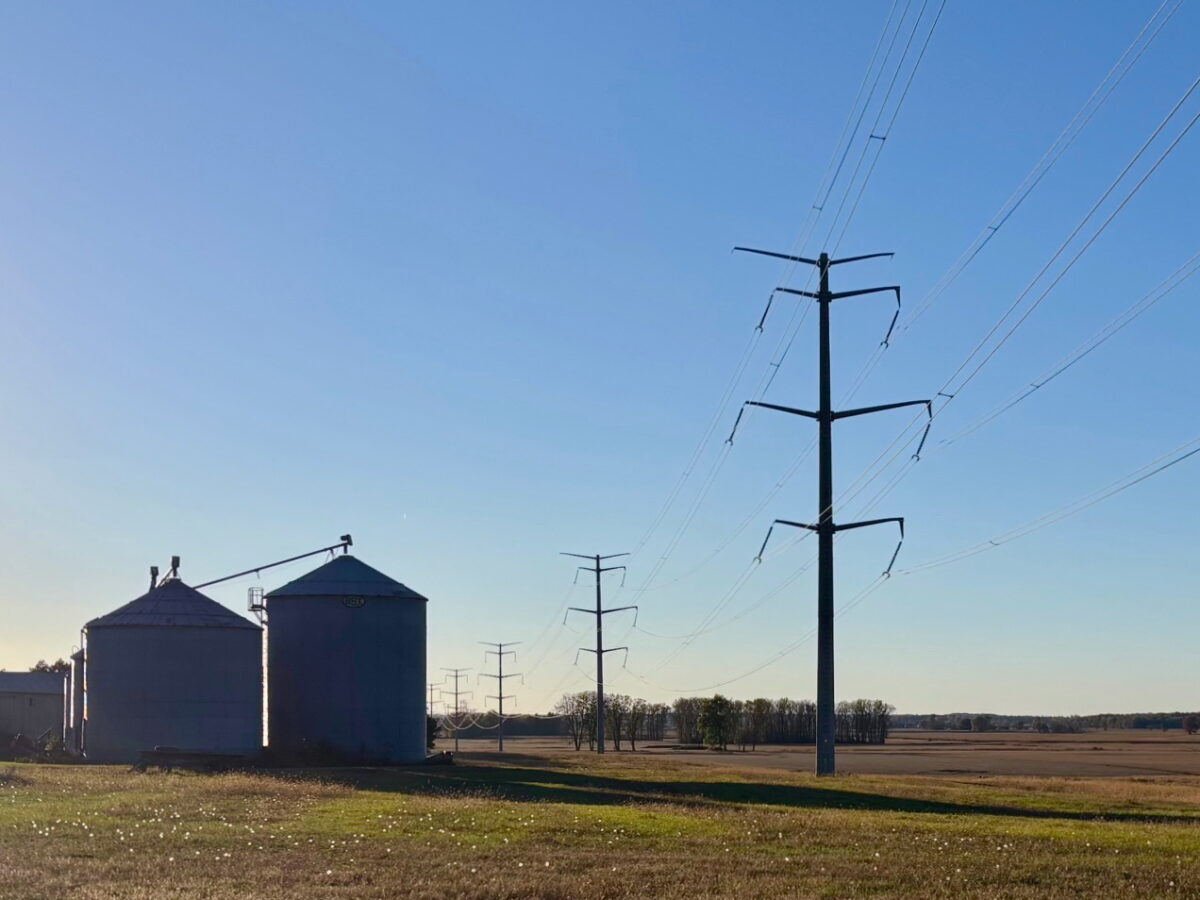Overview:
- Ypsilanti City Council unanimously backs a resolution in opposition to planned data center in neighboring Ypsilanti Township.
- The potential for higher energy bills and environmental impacts "seems really unreasonable," one public commenter says.
- U of M and Los Alamos National Laboratory plan to site the project on 144.5 acres of land on Textile Road south and east of Ford Lake Dam and North Hydro Park.
The Ypsilanti City Council unanimously approved a resolution Tuesday in opposition to the University of Michigan and Los Alamos National Laboratory’s planned data center project in adjacent Ypsilanti Township.
The resolution, introduced by Councilmember Amber Fellows, affirms the city’s opposition to the U of M and Los Alamos development.
Fellows’ resolution calls attention to Los Alamos’ nuclear weapons work and said questions linger about the university’s precise role in nuclear weapons research through the project.
The resolution urges the Ypsilanti Township board to use all available means to deny permits and prevent the project; the University of Michigan Board of Regents to end its partnership with Los Alamos; and the Washtenaw County Board of Commissioners to take a formal position against the project, among other calls to action.
“It is incumbent upon us, with the support of our community here, to take a formal position in opposition to this project and to encourage our local partners to also do that, so that we have a chance to actually prevent it from being completed,” Fellows said.
Ypsilanti is joining the group Mayors for Peace, an international organization for cities that works for total abolition of nuclear weapons and lasting world peace, according to the resolution.
The city will hold annual observations of Hiroshima Day on Aug. 6 and Nagasaki Day on Aug. 9 with “appropriate remembrance to honor victims of nuclear weapons.”
Nine people spoke in support of the data center resolution during Tuesday’s council meeting, raising concerns about Los Alamos’ nuclear weapons work and potential impacts to air quality, water resources, utility costs, and energy reliability.
Commenter Logan Fortino said data centers are expected to increase energy bills 8% by 2030.
“Passing that on to the residents of this community and having them deal with the environmental impacts … seems really unreasonable,” Fortino said.
U of M and Los Alamos plan to site the project on 144.5 acres of land on Textile Road south and east of Ford Lake Dam and North Hydro Park, according to university documents.
U of M refers to the $1.2 billion, taxpayer supported project as a “high-performance computing facility,” not a “commercial data center.” It will “support important research in science, energy and national security,” and will not manufacture nuclear weapons, according to the university.
The university expects to start construction in 2027, with the project becoming fully operational by 2031, according to an August story in The University Record, an in-house publication for faculty, staff, and retirees.
Ypsilanti Township attorney says ‘no transparency at all’ from U of M
The Ypsilanti Township Board of Trustees adopted a resolution Aug. 19 that urges U of M and Los Alamos to relocate the development to the American Center for Mobility, next to Willow Run Airport.
Township officials are excluded from talks over a potential relocation of the facility, Ypsilanti Township attorney Doug Winters told Planet Detroit Tuesday.
“There’s no transparency at all,” Winters said, adding that the project could dictate the future of land use in the township and impact utility ratepayers and the environment.
The University of Michigan did not immediately respond to a request for comment.
In August, a spokesperson told Planet Detroit the university is reevaluating the American Center for Mobility site at the township’s request and would keep local officials informed.
Ypsilanti Township residents have voiced concerns about the facility’s potential water and energy demands and the presence of Los Alamos in the community, which they said could support drone warfare and surveillance technologies.
Los Alamos was instrumental in the development of the atomic bomb and provides scientific and engineering support for national security programs, according to the Department of Energy.
The project has a stated 100-megawatt capacity. It could use 200,000 gallons of water a day, the executive director of the Ypsilanti Community Utilities Authority told WEMU.
🗳️ Civic next steps: How you can get involved
Why it matters
⚡ Data centers have large energy and water demands that environmental advocates argue could jeopardize Michigan water resources and state climate goals. Environmental advocates have also raised concerns about the U of M computing center’s possible involvement with surveillance and drone warfare technologies.
Who’s making civic decisions
🏛️ The University of Michigan, which is exempt from zoning rules, faces pushback from officials in Ypsilanti Township, where it plans to locate the data center project. The neighboring City of Ypsilanti voiced its opposition to the project Tuesday.
How to take civic action now
- 📅 Attend Ypsilanti Township and University of Michigan Board of Regents meetings.
- 📩 Email The University of Michigan regents at umregents@umich.edu or contact individual regents by email, telephone, or mail.
- 📣 Ask how the University of Michigan plans on addressing concerns around utility costs, environmental issues, and national security work associated with the project.
What to watch for next
🗓️ The University of Michigan plans to start construction for the data center in 2027, with the facility becoming operational by 2031.
Civic impact
🌍 Engaging with public officials on data center projects is one way residents can shape the impact these developments will have in Michigan.
⭐ Please let us know what action you took or if you have any additional questions. Please send a quick email to connect@planetdetroit.org.
MORE DATA CENTER COVERAGE
Saline Township settles with data center developer: ‘Lesser of two evils’
Facing a lawsuit from landowners and data center developer, Saline Township opts for a settlement that earmarks funding for the community.
Consumers Energy case sheds light on how Michigan data centers could hike your power bill
Michigan regulators are considering a Consumers Energy case that could indicate how the state plans to protect residential customers from potential price hikes caused by power-hungry data centers.
$1 billion data center plan hits roadblock in Howell Township
Planning commission vote follows a seven-hour public meeting and outpouring of resident concern over impacts to water resources and energy prices.





